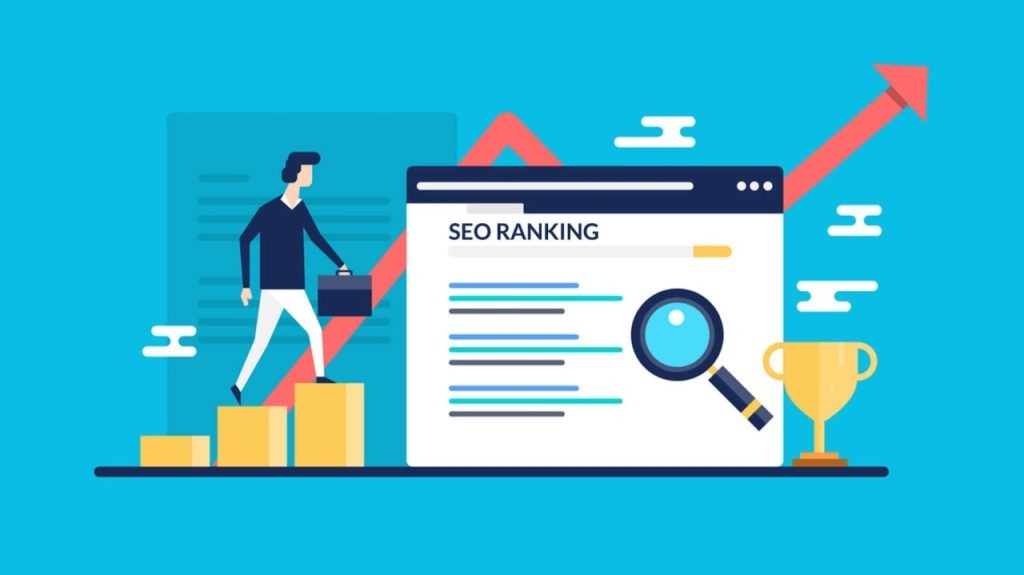Introduction to SEO
Optimizing a website for search engines (SEO) is an essential component of digital marketing.It makes it easier for websites to show up and stand out on search engine results pages (SERPs). If you’re just starting out, understanding SEO can seem daunting, but success is within reach with the right approach. This comprehensive guide provides a step-by-step SEO Guideline for Beginners,simplifying essential concepts and offering actionable advice to enhance your website’s performance.

What is SEO?
Search Engine Optimization (SEO) refers to the practice of enhancing a website’s visibility on search engines such as Google.The “SEO Guideline for Beginners” highlights four key areas of focus:
- Keywords: Discovering and strategically using terms that your target audience is searching for.
- Content Quality: Providing valuable, engaging, and relevant information to users.
- Technical Optimization: Ensuring your website is fast, responsive, and user-friendly.
- Backlinks: Building a network of links from authoritative and credible websites.
By mastering these elements, you’ll lay the foundation for SEO success.
Why is SEO Important?
SEO is vital for modern websites. The SEO Guideline for Beginners ensures you understand its importance:
- Increase Visibility: Boost your website’s exposure to a larger audience.
- Drive Organic Traffic: Attract visitors through unpaid search results.
- Build Credibility: Higher rankings suggest your website is trustworthy and authoritative.
- Improve User Experience: Well-optimized websites load faster and are more user-friendly.
Following this guide helps you harness these benefits effectively.
Core Elements of SEO
1. On-Page SEO
On-page SEO involves optimizing elements within your website. Key aspects include:
- Title Tags:Incorporate main keywords into your page titles.
- Meta Descriptions: Provide concise summaries of your content to encourage clicks.
- Header Tags: Utilize H1, H2, and H3 tags to organize content and enhance readability.
- Internal Links: Connect related pages to enhance navigation.
2. Off-Page SEO
Off-page SEO focuses on external factors that boost your site’s authority. Important strategies are:
- Backlinks: Secure links from high-authority domains.
- Social Signals: Promote content on social media platforms.
- Guest Blogging: Publish articles on niche-relevant websites.
3. Technical SEO
Technical SEO ensures your website performs well. Focus areas include:
- Mobile Optimization:Make sure your website is fully responsive across all devices.
- Page Speed: Optimize images, reduce scripts, and enable caching for faster loading times.
- Secure Connections (HTTPS): Use SSL certificates to build trust with users and search engines.
By addressing these core elements, your “SEO Guideline for Beginners” will cover all critical aspects of optimization.
How to Research Keywords
Keyword research is fundamental to any SEO strategy. This section of the SEO Guideline for Beginners outlines the steps:
- Use Tools: Platforms like Google Keyword Planner, SEMrush, and Ahrefs can help identify keywords.
- Analyze Competitors: Discover what terms your competitors are ranking for.
- Focus on Long-Tail Keywords: Target specific, low-competition phrases to attract niche audiences.
Effective keyword research ensures your content aligns with user intent, boosting your rankings.
Content Creation for SEO
Content plays a pivotal role in SEO.For success, your Beginner’s SEO Guide should focus on:
- Understanding User Intent: Create content that matches what users are searching for.
- Using Keywords Naturally: Incorporate keywords without overstuffing.
- Adding Multimedia: Boost user interaction by incorporating images, videos, and infographics.
- Updating Content Regularly: Keep your content fresh to maintain relevance.
Focusing on high-quality content will help keep your site valuable to both users and search engines.
Building High-Quality Backlinks
Backlinks signal trustworthiness to search engines. Here’s how the SEO Guideline for Beginners suggests you build them:
- Guest Blogging:Provide valuable input to well-known websites within your niche.
- Outreach Campaigns: Reach out to websites and request links to your content.
- Internal Linking: Strategically link pages within your own site.
- Create Link-Worthy Content: Develop resources like guides, infographics, and case studies that naturally attract links.
A strong backlink strategy enhances your website’s authority and boosts its rankings.
Technical SEO Checklist
Technical SEO ensures your site functions efficiently. Follow this checklist from the “SEO Guideline for Beginners”:
- Enable HTTPS: Use SSL certificates to secure your site.
- Fix Broken Links: Regularly check for and resolve dead links.
- Optimize XML Sitemaps: Ensure search engines can easily crawl your site.
- Improve Page Speed: Compress images, enable browser caching, and use a content delivery network (CDN).
- Ensure Mobile Friendly: Test and optimize your site’s mobile version.
A well-optimized site improves the user experience and increases your chances of ranking higher.
Measuring SEO Success
Tracking your progress is critical to refining your strategy. The SEO Guide for Beginners suggests using these tools:
- Google Analytics: Monitor traffic, user behavior, and conversions.
- Google Search Console: Identify crawl errors and keyword performance.
- SEMrush or Ahrefs: Analyze backlinks, keyword rankings, and competitor data.
- PageSpeed Insights: Check your site’s loading time and receive improvement tips.
By measuring your SEO Guideline for Beginners efforts, you can make data-driven decisions for continuous improvement.
Conclusion
Mastering SEO is a journey that requires patience and consistent effort. Our SEO Guideline for Beginners offers you the essential knowledge and practical tools to improve your website’s visibility, credibility, and overall user experience. By applying a balanced approach to on-page, off-page, and technical SEO strategies, you can unlock the potential for long-term growth and success in the digital world. Whether you’re a new website owner or looking to refine your skills, this guide provides you with the steps necessary to make meaningful improvements.
The SEO Guideline for Beginners ensures that you stay ahead of the competition in the ever-changing field of search engine optimization. With dedication and the right strategies, you can boost your website’s rankings and build a strong online presence. Start implementing these techniques today, and watch your website grow in both traffic and authority.
FAQ
- What is the most effective way to begin with SEO? Begin with keyword research, optimize on-page elements, and create valuable content.
- How much time does it take to see results? SEO results often take 3-6 months, depending on competition and execution.
- Can beginners handle SEO alone? Yes, with the right resources and consistent effort, beginners can manage SEO effectively.
- What distinguishes on-page SEO from off-page SEO? On-page SEO focuses on elements within your site, while off-page SEO involves external factors like backlinks and social signals.
- Are keywords still important in 2025? Absolutely! While search engines prioritize user intent, keywords remain crucial for targeting and ranking.
- Why is mobile optimization essential? With mobile traffic surpassing desktop, having a mobile-friendly site is critical for SEO success.
- What are the 4 important stages in SEO?
The four key stages in SEO are:- Keyword Research – Identify the keywords your target audience uses to find content.
- On-Page SEO – Optimize website elements like titles, meta descriptions, and content.
- Off-Page SEO – Build backlinks and improve domain authority through external efforts.
- Technical SEO – Ensure site speed, mobile-friendliness, and proper indexing.
- How can I start SEO as a beginner?
Begin with keyword research to understand your audience. Create quality content around these keywords, optimize your website’s on-page elements, and focus on building backlinks. Monitor progress using SEO tools.
These FAQs provide clarity on common concerns for beginners.

